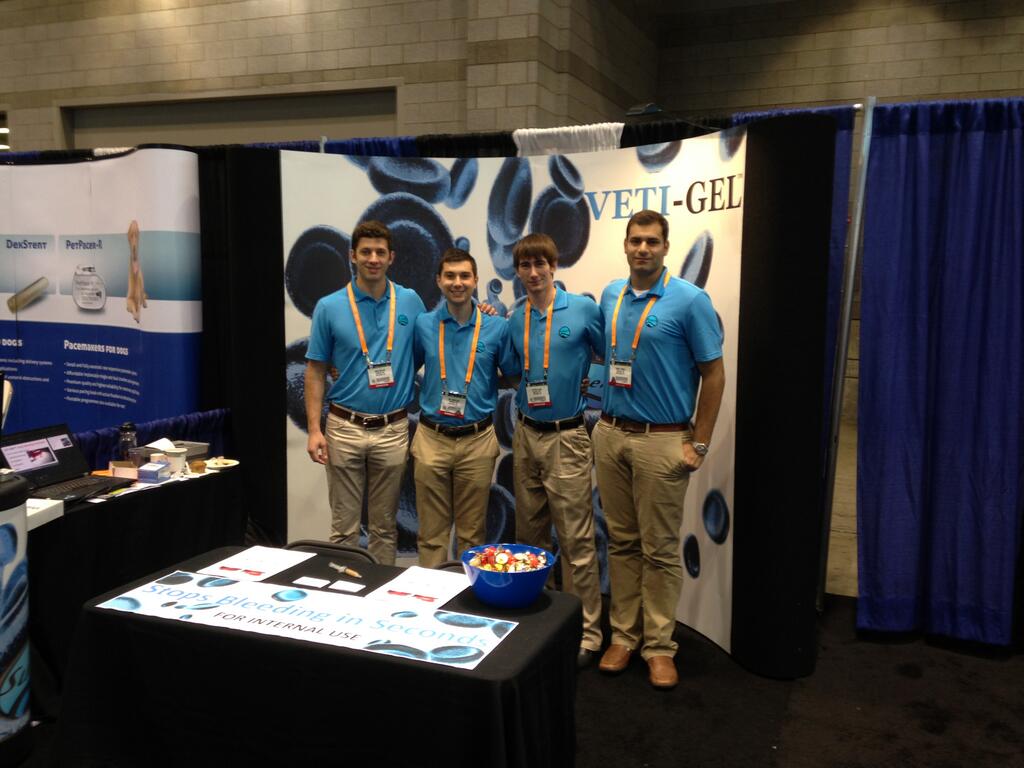The half-dozen Brooklynites behind biotech startup Suneris are currently moving their main product Veti-Gel to contractual labs for further verification of its ability to seal up wounds on animals and stop bleeding quickly.
Veti-Gel is a substance based on plants that imitates the body’s own healing compounds, according to The Daily News. Once applied, it holds its own pressure and signals the body to stop bleeding and begin healing. It comes with a topical spray that makes the gel polymerize so that it looks and feels like the surrounding tissue, according to the company’s website.
“Our goal is to have it on every soldier’s belt, in every operating room and on every ambulance,” Isaac Miller, the company’s CFO and cofounder told Technical.ly Brooklyn. The gel was invented by Joe Landolina, the CEO and other cofounder.
Once they have completed verification with contractual labs, Suneris will distribute Veti-Gel to veterinarians for feedback and evaluation. Following that, they hope to be cleared to manufacture and market the product, indicated for surgical use, to veterinarians in the first half of 2014.
It’s also possible that another product using the gel could be cleared for indication for topical use on humans sometime in 2014, assuming everything goes well and the Food and Drug Administration moves with even modest speed, which, admittedly, are two large assumptions.
This video demonstrates how the gel works on a pork chop with blood pumping into it.
Once the gel has become FDA approved for indications to stop external and internal bleeding in humans, the team will begin to be able to explore applications of the gel for other sorts of treatments. “The gel itself can act as a platform technology,” Miller explained, meaning it may also prove to be useful for caring for other kinds of medical conditions.
Suneris is a team of six, who telecommute when not in rented trial labs and are loosely based around downtown Brooklyn. They have investments from friends and family and private investors, and opted not to spend it on office space for now, as they spend most of their time in labs at this stage, according to Miller.







